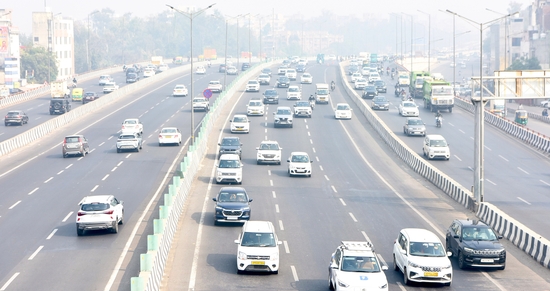The Union government has amended the Conduct of Election Rules,1961, to restrict default public access to certain election material such as CCTV camera footage.

Based on the recommendation of the Election Commission of India (ECI), the Union law ministry on Friday amended Rule 93(2)(a) of the Conduct of Election Rules, 1961, to restrict the type of “papers” or documents open to public inspection. The earlier rule stated that “all other papers relating to the election shall be open to public inspection”. This has now been restricted to “papers as specified in these rules”.
According to experts and ECI officials, this means that all election papers that are not mentioned in the CoE Rules or specifically listed by ECI cannot be made available to the public without a court order, allowing district election officers and other public authorities to deny access under different laws, including the Right to Information Act.
Two senior officials, who spoke on the condition of anonymity, said ECI made the proposal to amend the rules to the law ministry last week. The proposal came after the Punjab and Haryana high court, on December 9, directed ECI to provide advocate Mehmood Pracha with videography, CCTV footage and copies of forms 17C Part I and II related to the conduct of Haryana state elections within six weeks. ECI had opposed Pracha’s plea and said that since he did not contest the assembly elections and not is a resident of Haryana, he was seeking the documents “for malicious intent and purposes”.
“Earlier, under Rules 93(2), we could have gone to the DEO and asked for documents such as Form 17C Part I and II. Now, they can potentially deny it as the amendment does not specifically list out the papers that can be provided,” Anjali Bhardwaj, a transparency activist and co-convener of the National Campaign for People’s Right to Information, said.
One of the officials cited above said that candidates and their agents will continue to get all statutory papers, as required under the law. Bhardwaj said that election papers were meant to be accessible to any citizen, not just candidates and their agents, and were not meant to be limited by constituency.
This official said that when the CoE Rules were envisaged, CCTV footage was not a factor, and since it is not paper, it could not be included in election papers. The aim of this amendment, this person said, was to only exclude CCTV footage, this person said.
This first official said that sharing CCTV footage from the polling booth posed a serious risk to voter secrecy and privacy. “In sensitive areas such as Jammu and Kashmir, such footage exposes voters and their voting habits, including time of departure and arrival, to the terrorists. Same is the case with Manipur and areas affected by left-wing extremism,” the official said. “There is also the risk of this footage from poll booths being used to train artificial intelligence models that can then create fakes. Even fact checkers will not be able to detect them,” this person said.
In January, citing voters’ privacy, the ECI had instructed National Informatics Centre Services Incorporated to cancel its tender seeking proposals from companies to provide surveillance equipment – including facial recognition tools for voters and drones – to monitor voters during the then upcoming general and state elections. The poll body had said that that the tender was floated without ECI’s approval.
To be sure, it is not clear how privacy concerns would extend to CCTV footage from strongrooms that hold electronic voting machines (EVMs).
Prateek Waghre, technology policy researcher and former executive director of Internet Freedom Foundation who had written to the ECI about NICSI’s tender, raised concerns about the timing of the amendment given the Pracha case.
“The changes are highly likely to enable the evasion of accountability as they can be used to deny the public the ability to inspect records related to the conduct of elections, other than those specified in the rules. Invoking privacy concerns as an excuse to impose very broad limits on public inspection and weaken election integrity mechanisms is problematic,” Waghre said, as he decried “blanket denial of information against existing transparency measures”.
Was the amendment required?
Rule 93(2) allowed for all election related papers to be inspected by the public. Only seven types of documents (such as packets of used ballot papers, packets with the register of voters, etc.) listed in Rule 93(1) were exempted and required a court order. The new amendment specifies that only those papers “specified” in the CoE Rules are open for public inspection.
“The amendment is an enabling provision and the ECI will soon release a list of papers that can be accessed via Rule 93(2),” the first official said.
The second official cited above explained that effectively, all the papers not included in Rule 93(1) – which need court order for access – will now need specific ECI instructions on how they need to be dealt with, how long they can be retained, how they should be destroyed, etc. These revised instructions should be released in a week or two, this person said. Rule 93(2) can now not be used as a default to get access to election-related papers, the official explained.
“Why was the amendment required then? They could have earlier also denied access to papers not there in CoE Rules,” Bhardwaj said.
“The amendments made by the central government are extremely regressive and violates people’s right to information as they take away the right of the people to access critical records such as copies of Form 17C, and videography of the election process,” she said.
Congress’s Jairam Ramesh, in a tweet, said that this amendment supported the party’s claims “about the rapidly declining integrity of the electoral process managed” by the ECI. He said that the ECI’s “move” will “soon be legally challenged”.


